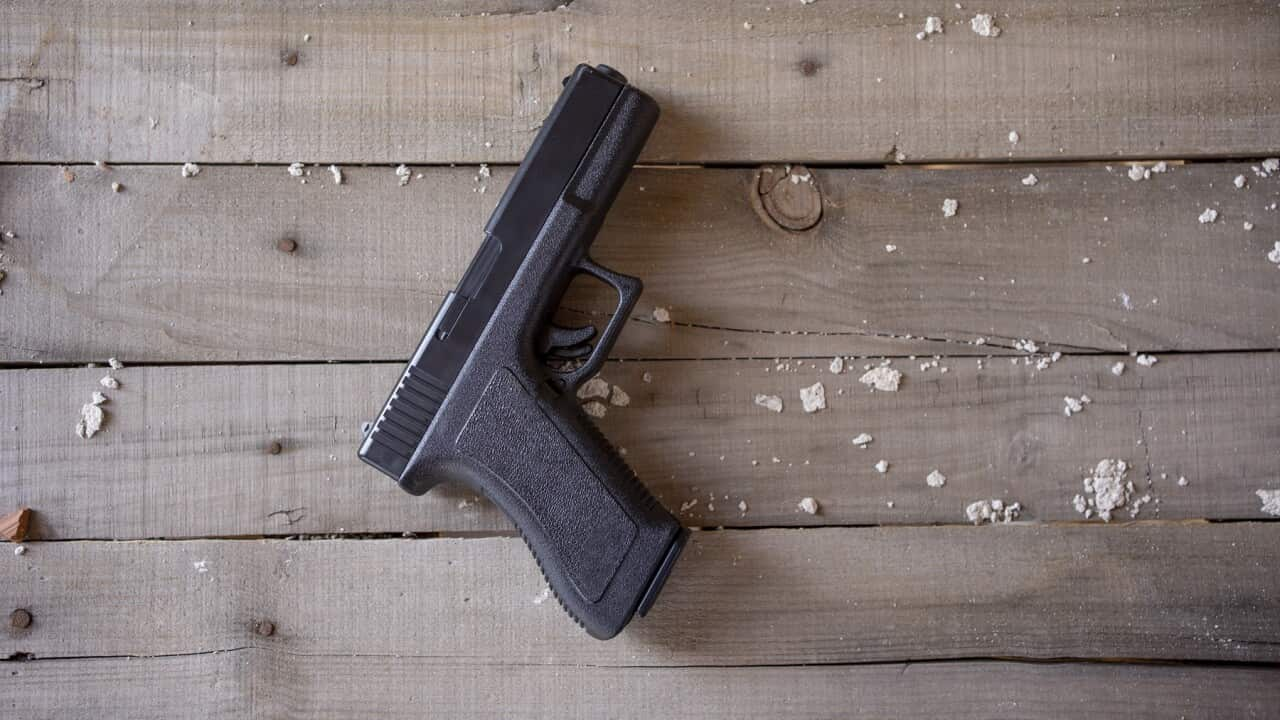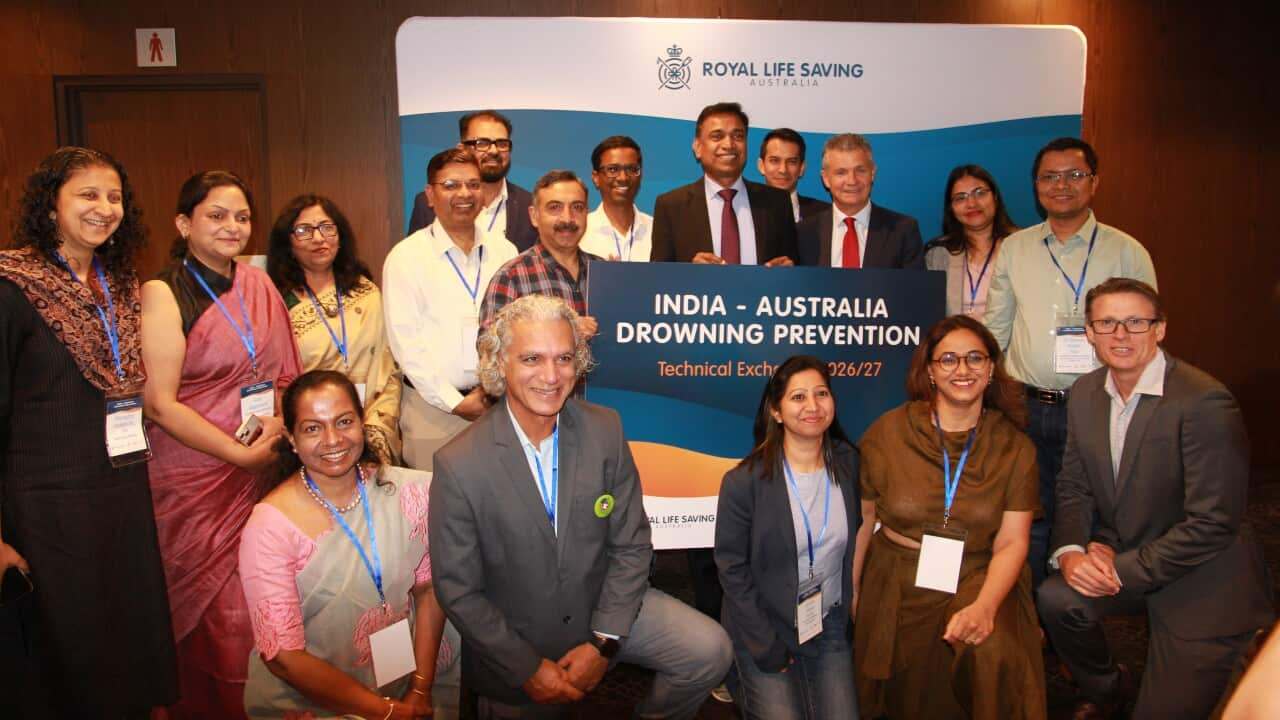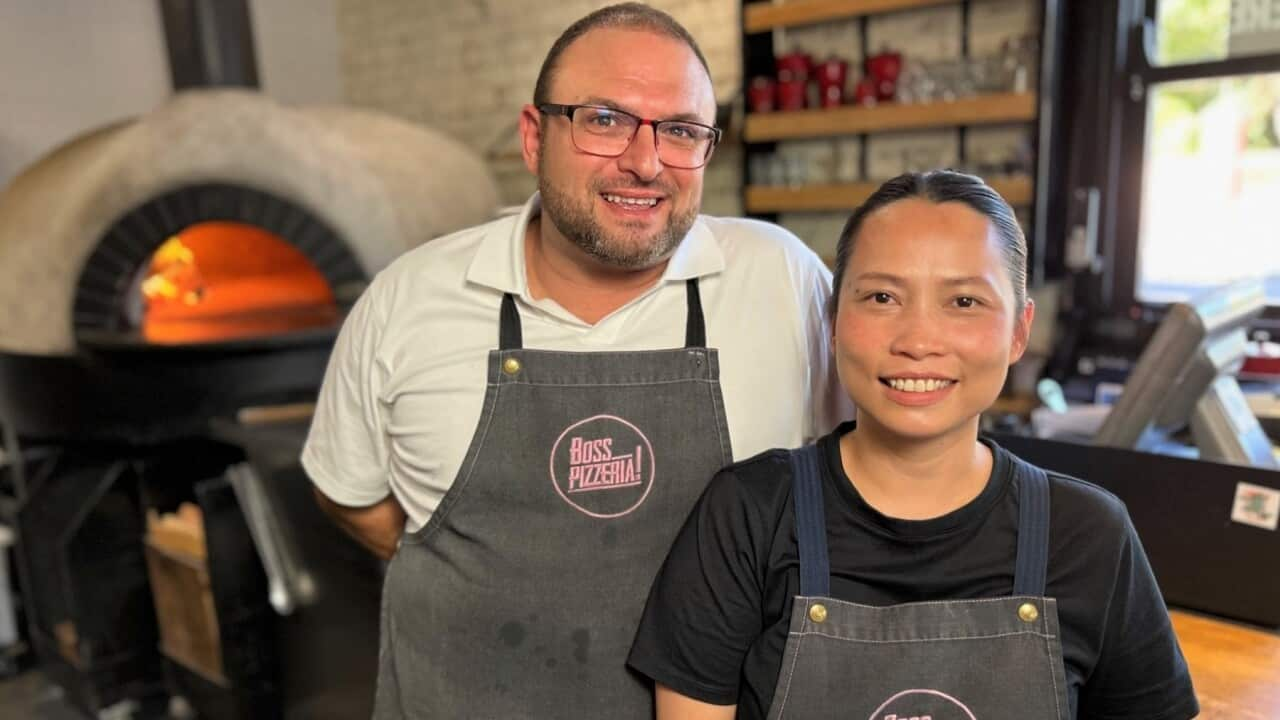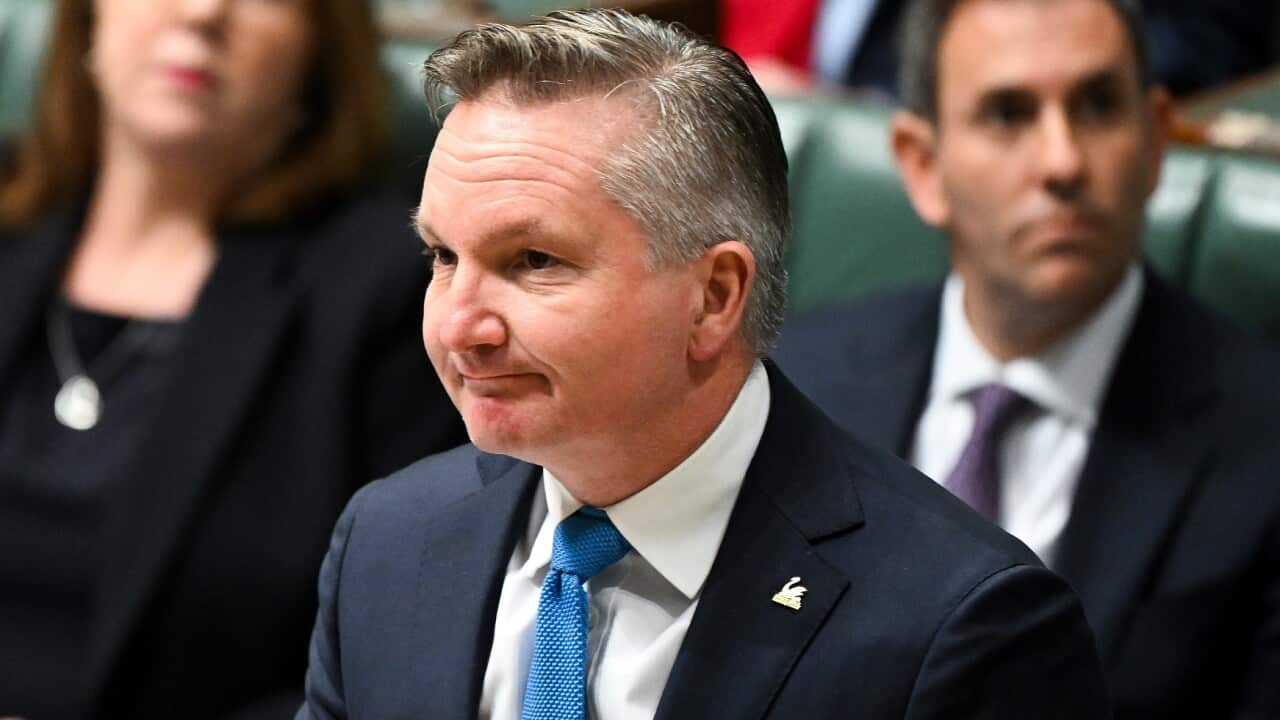Listen to Australian and world news, and follow trending topics with SBS News Podcasts.
TRANSCRIPT:
"Australians are very, very proud of their gun laws, but there is a level of complacency in the community that everything's absolutely fine. There is a erosion of gun laws in Australia and 97 per cent of Australians don't actually shoot."
That's Tim Quinn, the President of Gun Control Australia.
He says there has been an erosion of gun laws in Australia in the years since the Port Arthur massacre.
"We need to make sure that governments and police and everybody who has some sort of jurisdiction over this are protecting that 97 per cent of Australians and not giving into the gun lobby."
That's a view also shared by Stephen Bendle, the Convenor of the Australian Gun Safety Alliance, and a senior advisor for the Alannah and Madeline Foundation, set up in memory of Alannah and Madeline Mikac, who were tragically killed at the ages of just six and three in Tasmania's 1996 Port Arthur massacre, along with their mother and 32 others.
Mr Bendle says there is a gun lobby in Australia that has successfully argued against even stronger gun laws for decades.
"We now have over four million registered firearms in Australia, and we have a very aggressive gun lobby that is well-resourced, well-organised, very influential, and seeking to make more guns available for more people."
SBS News reached out to gun lobbying group SICA, the Shooting Industry Foundation of Australia for this story.
They were not immediately available for a comment.
In any case, the gun law landscape in Australia is complex, because state and territory governments have constitutional responsibility for most firearms legislation - which made making the laws consistent difficult for a long time.
Following Port Arthur, every state government - encouraged by then Prime Minister John Howard - made significant changes to Australia's firearm legislation, introducing legislation that became known as the National Firearms Agreement, and organising a major buyback of guns.
Dr Alice Grundy is the co-author of multiple gun control reports by the Australian Institute.
She says people might not realise that there are now more guns in Australia than there were before Port Arthur - roughly one firearm for every seven people in the country - though exact figures are hard to come by.
"Our research found that most firearms are in metropolitan areas, which I think would surprise most people."
Tim Quinn says he's aware of some people in suburban Sydney who own over 300 firearms in their houses.
"That's a problem because they become somewhere for a gun to be stolen from and it puts more guns in the community, which means more potential for incidents from these people. These people aren't collectors as such."
Western Australia is the only state that has a limitation on the number of firearms that someone can purchase - capped at ten.
Dr Grundy says it doesn't mean no one else can ever purchase more than ten firearms - it just means that that's the default setting.
That doesn't necessarily translate to trouble, though.
Samara McPhedran is a Principal Research Fellow at Griffith University.
She's published a piece in the Conversation that says although the number of gun licences and legally owned guns have been going up for decades, the misuse of firearms has been declining for even longer.
She says firearm-related homicides started dropping in the early 1980s, kept falling at the same rate after Port Arthur, and remain stable and low today.
Who then is in possession of firearms - and who typically has a gun licence?
To begin with, every jurisdiction has junior permits that allow children as young as 12 to legally use a firearm.
The Tasmanian Police Firearms Service agency says that is to allow them to receive instruction in the safe use of a firearm under supervision.
But generally speaking, if someone over 18 wants a gun licence, they have to provide a genuine reason for it.
Those genuine reasons might include being involved in sporting shooters clubs or competitions, vermin control or recreational hunting, primary production for farmers, and people interested in collecting historical and antique firearms.
For some authorities however, these genuine reason provisions are open to exploitation - and New South Wales is the only state that currently has a requirement for a test on whether or not license holders are using their firearms for the genuine reasons they say they need the gun for.
A new bill has been tabled in that state's parliament, backed by the Minns government, that would change the law so that a 'genuine' reason for owning a gun includes possessing a conservation hunting license.
Stephen Bendle says the hunting bill is an outrage.
"The so-called conservation hunting bill that's being introduced by the Shooters Party into the New South Wales Parliament is a outrage and it includes a whole range of things such as a right to hunt. They want to have a minister for hunting, they want a new hunting authority that will be a government paid marketing agency for hunting."
For Dr Grundy, a further concern is technological advances in the production of guns'.
"3D printed firearms are a major concern. The technology is relatively cheap to get one of the more sophisticated 3D printers is a few thousand dollars. There are only two states in Australia where 3D firearm blueprints are illegal. That's New South Wales and Tasmania. And with a few extra little parts from the internet, it's relatively straightforward to produce a 3D printed gun. And what's equally as concerning is that it's very easy to destroy a three 3D printed firearm."
Stephen Bendle says advocates are doing what they can to confront these issues.
"The police all around Australia are very concerned about 3D and privately made firearms. They've established a national task force, which briefed us and a few other public organisations about their concerns. And we are working with all Australian governments to try and disrupt the process."
The final concern for advocates is not just numbers but the location of guns.
Dr Grundy says a greater consistency between the states would really help in terms of managing firearms in the country, and work towards strategies to combat the theft of guns and their possession by unlicensed people.
She says a national register was meant to be part of the gun reforms in the post Port Arthur landscape but it still hasn't happened.
"Well it's nearly 30 years later and we still don't have one. It was the Attorney General's department who was responsible for creating it, and their timeline said that it would be launched by 2028. It's now with Home Affairs. We're concerned that that's still a few years away and all sorts of things can happen in those years."













